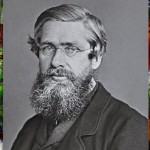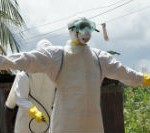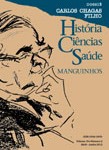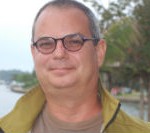September, 2019
Josh Davis / Natural History Museum
On the night of 2 September 2018, a fire raged through Brazil’s most important historical and scientific museum, gutting the main palace and destroying tens of thousands of priceless specimens and artefacts.
Curators, staff and firefighters worked throughout the night, desperately trying to save what they could. They formed human chains to save objects from the blaze, until the blistering intensity of the fire drove them back.
When dawn broke the next day, the teams were able to get their first look at the devastation.
They found the charred, smouldering beams of the collapsed roof strewn across the ground floor, having come crashing down with the floors above. Twisted metal girders were entwined with the remains of display cabinets, fossils and archaeological material smashed to pieces.
Initial reports confirmed the worst: only a fraction of the items that had been housed inside the main building had survived.
The museum lost its entire collection relating to indigenous languages and history, including recordings, documents, artefacts and photos of indigenous Brazilian groups. The loss of recordings means that some languages, now dead, can never be heard again. Read the full story
See how to donate:
See more:
The fire, the death and the hope – Our current issue is now available online.
Brazilian researchers launch a campaign to create a collaborative digital archive of Museu Nacional – If you have digitized, photocopied or transcribed documents, originally from the museum’s archive please share them.
How museums affect the brain – Research provides evidence for architecture’s power to induce meditation.
Una campaña busca reunir copias de documentos que pertenecieron al Museo Nacional de Rio de Janeiro – Si usted tiene documentos digitalizados, fotocopiados o transcritos, cuyos originales se preservaban en el Archivo del Museo Nacional, le pedimos su atención.
International expositions: a historiographic approach from Latin America – This article was possible thanks to a grant we received from the Wellcome Trust.











